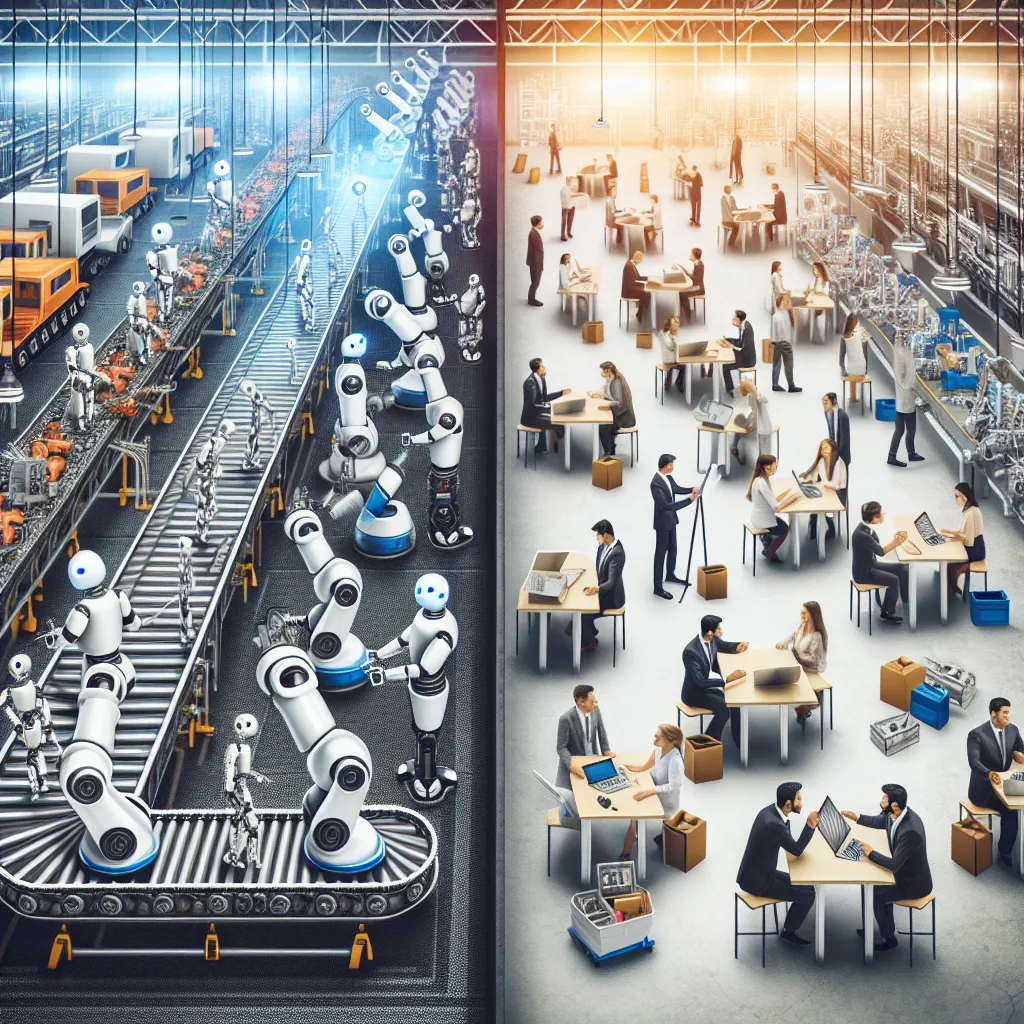Automation and its impact on job opportunities is a recurring theme in IELTS Writing Task 2. This topic has appeared frequently in past exams and is likely to continue being a popular choice due to its relevance in today’s rapidly evolving job market. Based on analysis of past IELTS exams and current trends, we can expect to see questions related to automation and employment in future tests. Let’s explore a sample question and develop a comprehensive response that meets IELTS Writing Task 2 requirements for Band 7-8 scores.
Analyzing the Task
Some people think that in the future all jobs will be done by robots, while others believe that there will always be a need for humans in the workplace. Discuss both views and give your opinion.
This question presents two contrasting views on the future of work in relation to automation. It requires us to:
- Discuss the perspective that robots will eventually replace all human workers
- Examine the view that human workers will always be necessary
- Provide our own opinion on the matter
Let’s break down these elements and craft a well-structured essay that addresses all parts of the question.
Sample Essay
Technological advancements have led to increased automation in various industries, sparking debates about the future of human employment. While some argue that robots will eventually take over all jobs, others maintain that human workers will always be essential. This essay will examine both viewpoints before presenting my own perspective on this complex issue.
Those who believe that robots will replace all human workers in the future point to the rapid progress in artificial intelligence and robotics. They argue that machines are becoming increasingly sophisticated, capable of performing not only repetitive tasks but also complex cognitive functions. For instance, automated systems are already being used in fields such as manufacturing, customer service, and even some aspects of healthcare. Proponents of this view suggest that as technology continues to advance, there will be fewer and fewer jobs that robots cannot do more efficiently and cost-effectively than humans.
On the other hand, those who believe humans will always be needed in the workplace emphasize the unique qualities that people bring to their jobs. Human creativity, emotional intelligence, and adaptability are traits that are difficult, if not impossible, to replicate in machines. Furthermore, many jobs require a human touch, particularly in fields like education, counseling, and leadership. Advocates of this perspective argue that while automation may change the nature of work, it will also create new opportunities for humans to apply their distinctively human skills.
In my opinion, while automation will undoubtedly continue to transform the job market, it is unlikely to completely eliminate the need for human workers. Instead, I believe we will see a shift in the types of skills that are valued in the workplace. Roles that require empathy, critical thinking, and complex problem-solving are likely to remain in human hands, while more routine and predictable tasks may be increasingly automated. Additionally, the development and maintenance of automated systems will create new job opportunities in fields related to robotics and AI.
However, it is crucial to acknowledge that the transition to a more automated workforce will not be without challenges. Governments and educational institutions must work together to ensure that workers are equipped with the skills needed to thrive in this evolving job market. This may involve focusing on developing uniquely human capabilities and fostering lifelong learning to help workers adapt to changing technological landscapes.
In conclusion, while automation will undoubtedly have a significant impact on job opportunities, it is unlikely to result in a future where all jobs are performed by robots. Instead, we can expect a transformation of the job market, with a greater emphasis on distinctly human skills and new roles emerging in response to technological advancements. The key to navigating this change will be adaptability and a commitment to ongoing skill development.
(Word count: 446)
 Automation Impact on Jobs
Automation Impact on Jobs
Writing Tips
When addressing topics related to automation and job opportunities in IELTS Writing Task 2, consider the following tips:
-
Use specific examples: Incorporate real-world examples of how automation is affecting different industries to support your arguments.
-
Balance your discussion: Ensure you give equal weight to both viewpoints presented in the question before stating your own opinion.
-
Use appropriate transition words: Employ words and phrases like “however,” “on the other hand,” and “furthermore” to improve the flow of your essay.
-
Vary your sentence structure: Mix short and long sentences to maintain the reader’s interest and demonstrate your language proficiency.
-
Use conditional language: When discussing future possibilities, use phrases like “may,” “might,” “could,” and “is likely to” to show nuanced thinking.
Key Vocabulary
Here are some essential vocabulary items related to automation and job opportunities:
-
Automation (noun) /ˌɔːtəˈmeɪʃn/: The use of machines or computers to do work that was previously done by people.
-
Artificial Intelligence (AI) (noun) /ˌɑːtɪfɪʃl ɪnˈtelɪdʒəns/: The development of computer systems able to perform tasks that normally require human intelligence.
-
Robotics (noun) /rəʊˈbɒtɪks/: The branch of technology that deals with the design, construction, operation, and use of robots.
-
Obsolete (adjective) /ˈɒbsəliːt/: No longer in use or no longer useful.
-
Adaptability (noun) /əˌdæptəˈbɪləti/: The quality of being able to adjust to new conditions or changes.
-
Workforce (noun) /ˈwɜːkfɔːs/: The total number of people who are available to work.
-
Upskilling (noun) /ˈʌpskɪlɪŋ/: The process of learning new skills or teaching workers new skills.
-
Technological disruption (noun phrase) /ˌteknəˈlɒdʒɪkl dɪsˈrʌpʃn/: A transformation that results from emerging technologies.
-
Job displacement (noun phrase) /dʒɒb dɪsˈpleɪsmənt/: The elimination of jobs due to technological or economic changes.
-
Human-machine collaboration (noun phrase) /ˈhjuːmən məˈʃiːn kəˌlæbəˈreɪʃn/: The process of humans and machines working together to achieve common goals.
Conclusion
The impact of automation on job opportunities is a complex and evolving topic that is likely to remain relevant in IELTS Writing Task 2. By understanding the key issues and developing a nuanced perspective, you can craft compelling essays on this subject. Remember to practice with various question types, such as:
- Discussing the advantages and disadvantages of increased automation in the workplace
- Examining the role of education in preparing workers for an automated future
- Considering the ethical implications of replacing human workers with machines
By preparing for these potential questions and expanding your vocabulary related to technology and employment, you’ll be well-equipped to tackle any automation-related topic in your IELTS Writing Task 2 exam.
For more insights on related topics, you might find these articles helpful:


